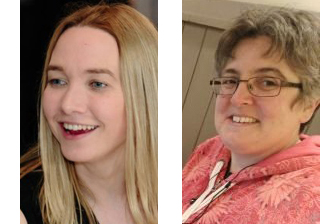Piloted with Age UK Wakefield, students under supervision will use audio-visual links to offer specially-tailored advice and encouragement to older people struggling on their own during the pandemic
THE lockdown has made an impact on the wellbeing of vulnerable people, even if they have avoided coronavirus. Now, the University of Huddersfield is pioneering an audio-visual telehealth-coaching service that will help older people preserve and boost their physical and mental health.
Launched on 1 June, in collaboration with Age UK Wakefield District, the new service will draw on the expertise of students and their lecturers in the twin disciplines of occupational therapy and physiotherapy. Older people who are able to use audio-visual technology will take part in six sessions over three weeks and receive specially-tailored advice and encouragement.
Study Occupational Therapy and Physiotherapy at Huddersfield
“The sessions will centre around the goals that participants want to achieve,” said Bethan Hebberd, who lectures in physiotherapy at the University and is one of the clinicians who have developed the project.
“They might be feeling anxious or not sleeping very well or they feel they are not being very active,” she continued. “We will work through techniques around health coaching, relaxation and exercise to help them achieve their goals.”

Ms Hebberd explained that at a very early stage in the pandemic she and her colleagues, including Head of the Division of Health and Rehabilitation Dr Benita Powrie, realised the effect it was having on health and wellbeing beyond the virus itself.
“Older people and those with significant health conditions are having to isolate and that can have secondary issues around mental and physical health. We realised that the NHS is having to focus on keeping people alive, so we thought about how we could help people who are alone, suffering from poor health.”
The answer was to pilot a new tele-coaching service, in which students – supervised by their qualified clinician lecturers – offer advice via audio-visual links.
A collaboration was developed with Age UK Wakefield District, the leading charity for older people. It has located potential users of the service and circulated them with referral forms that provide the Huddersfield students and lecturers with the data they need to launch the individualised audio-visual sessions.
Paula Bee, CEO, Age UK Wakefield District says: “We are delighted to be collaborating with the team at the University of Huddersfield on this innovative programme. The pandemic has deeply impacted on the well-being of our older people. This programme offers a great opportunity to provide evidence-based intervention, to support well-being in these difficult times.”

Extending the project
Although the project is a response to the Covid-19 emergency, valuable lessons will be learned and it is likely that even after normality has returned, the use of audio-visual technology for healthcare will become an established feature of the curriculum at the University of Huddersfield.
“Tele-health has become popular in parts of the world, such as Australia and the USA, where it has been more of a necessity,” explained Bethan Hebberd.
“But since the start of the current crisis, tele-health in the NHS has sky-rocketed. Therefore, we believe that we must be training our students to use it. We are hoping that our project is a pilot study that we can then roll out to make up part of our work placement offering. We are very keen to develop this further.”
The University would like to thank the Human and Health Sciences Team, Age UK Wakefield District, Physiotec and Physioroom, who have all worked together to provide this worthwhile community service.
Some 32 students and eight lecturers will take part in the project. It is unique because it delivers health coaching via video call from a combination of two disciplines – occupational therapy and physiotherapy.
Ms Hebberd and Dr Powrie are particularly excited that this project will expose students to interprofessional working, peer learning and service development.
More Stories
Schools open may not protect vulnerable children
Is the Government’s argument that schools reopening will aid the safeguarding of vulnerable children over simplistic?
Warnings over new adoptions/fostering regulations
Concerns rage over the new Adoption and Children (Coronavirus) (Amendment) Regulations 2020 which are being brought in with no consultation
Covid-19 police powers changes public relationship
Serving police inspector and PhD researcher Dan Jones warns against police forces adopting an authoritarian approach
